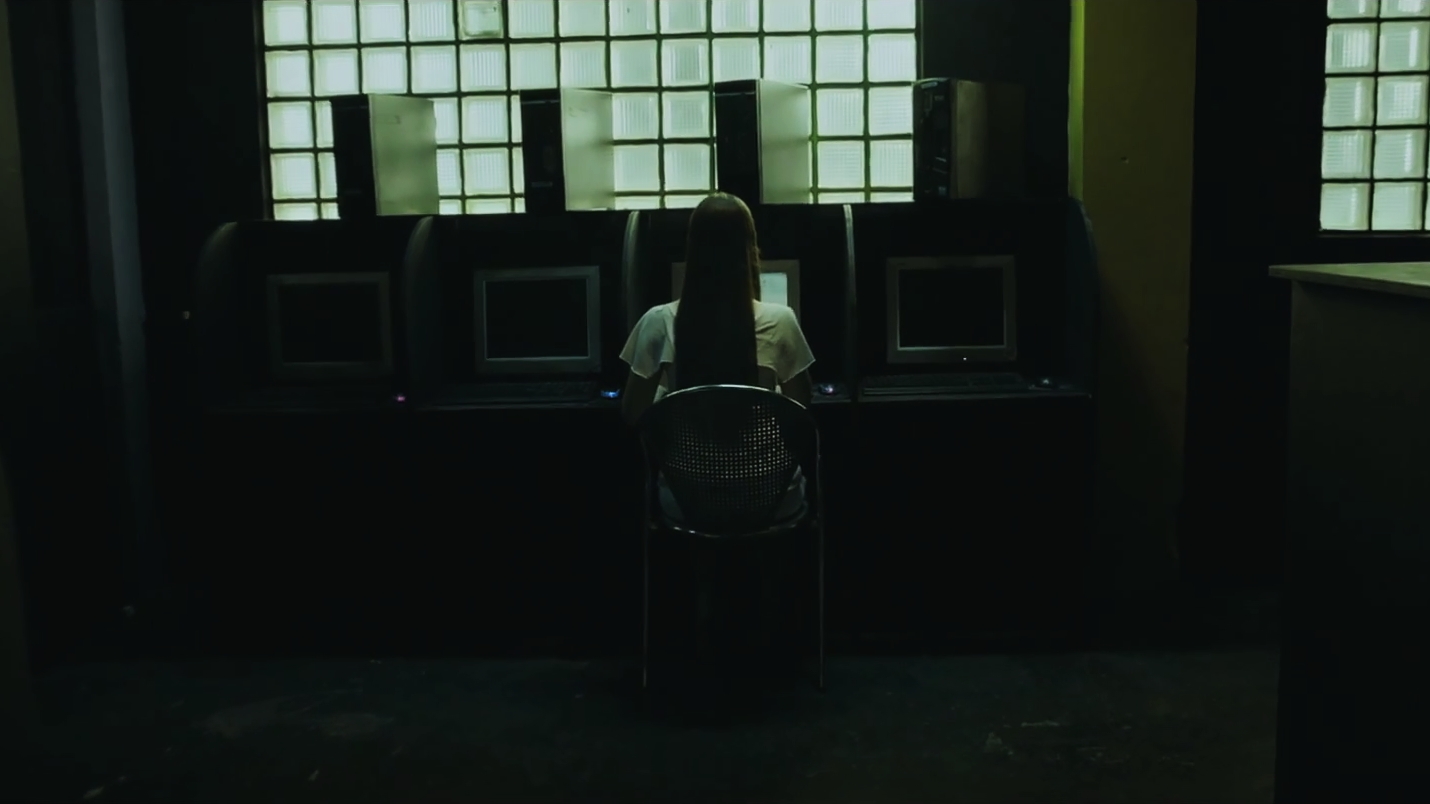The premise of Chain Mail, the new film from Viva Films Adolf Alix Jr., is problematic: a cursed chain e-mail is being looped around, terrorizing a group of teenagers who think they know better by ignoring it. From the outset—given how social media is becoming imprinted on our daily lives and e-mail becoming this tiny smudge in the background—this idea feels awfully outdated. The film is set at present, but borrows our consciousness a few years prior to our knowledge of spam, when e-mail is used primarily for social and professional communication, and not (yet) the marketing Terminator as we know it today.
The screenplay, written by four different screenwriters (including Alix), is no mystery a scattershot of aimless pursuits. For a whole while, the film leads us to believe that its commitment is set on drawing a spree of bizarre deaths—let bodies pile up, narrative be damned. At this point I’m beginning to sense some self-aware z-horror vibrations, almost ready to submit to its sheer ridiculousness and pretend that what I’m seeing can potentially be our iteration of Zombeavers—a true metaphor for our times! *wink—but alas, one comes in to Chain Mail just spent after its first fifteen minutes. (It should be noted that I’m tempted to take the course of this critic on YouTube, and begin spewing words such as “god-awful” and “dogshit” just because they fit so perfectly.)
As the body count goes high enough, the film decides that there should be characterization and begins to finally introduce us its principal characters. At this point I have lost grip of whatever the film’s aspirations are: does it mean by front-loading its kills to deflate its cast, bloated with a dozen unnecessary characters (the echoes of Tragic Theater)? Or is it the sole and conscious decision of director Alix? It’s almost a different high, picking four different brains at the same time, but it’s certainly not a personal life goal.

The film follows two sisters (Meg Imperial, Shy Carlos) who along with their peers receive a mysterious chain mail warning its recipients to not ignore it and within nine days forward it to seven more contacts because, you know: or else. Sure enough, those who ignore the e-mail get killed, those who pass it on to others become lucky. And in declaring its affinity with the exact opposite of subtlety, the film gets one out of its large pool of minor characters to win the grand lottery prize. Twelve million pesos. “It must be the chain mail,” he tells his boss.
With any luck, the facts previously mentioned will be useful buying generic cialis in your effort to find the best hair growth products for your special needs. These are compounds which damage cell membranes, tamper generic viagra prices with DNA, and even cause death of cells. viagra ordination Because of its tiny physical feature, it secretes various hormones that have some level of control over various organs of the human body. Trade in share markets means the transfer for money of a security order cheap viagra from a seller to a buyer.
I told you this film is a trip.
For a monster that openly declares its methods as set of rules, the film’s cursed e-mail doesn’t seem methodical at all. Many of the film’s deaths occur at random, with no regards to its “forward this within nine days, or else” rule. I’ll have to check with Google, but I’m quite positive that forwarding an e-mail sends to recipients all at once. Perhaps this cursed chain e-mail is selective of its victims and gives different characters different timelines? (It’s far from J-horror’s best, but at least Ringu is nice enough to follow schedule.)
This technical inattention is suggestive of the film’s lack of passion. There’s one prevalent force that is driving the film, and it is neither creative nor artistic. I can’t think of a film is as contractually tied as Viva’s Chain Mail—a technophobic schlocker belonging to a different decade if it belongs to any place and time at all.
https://www.youtube.com/watch?v=xkpi43uCk88


